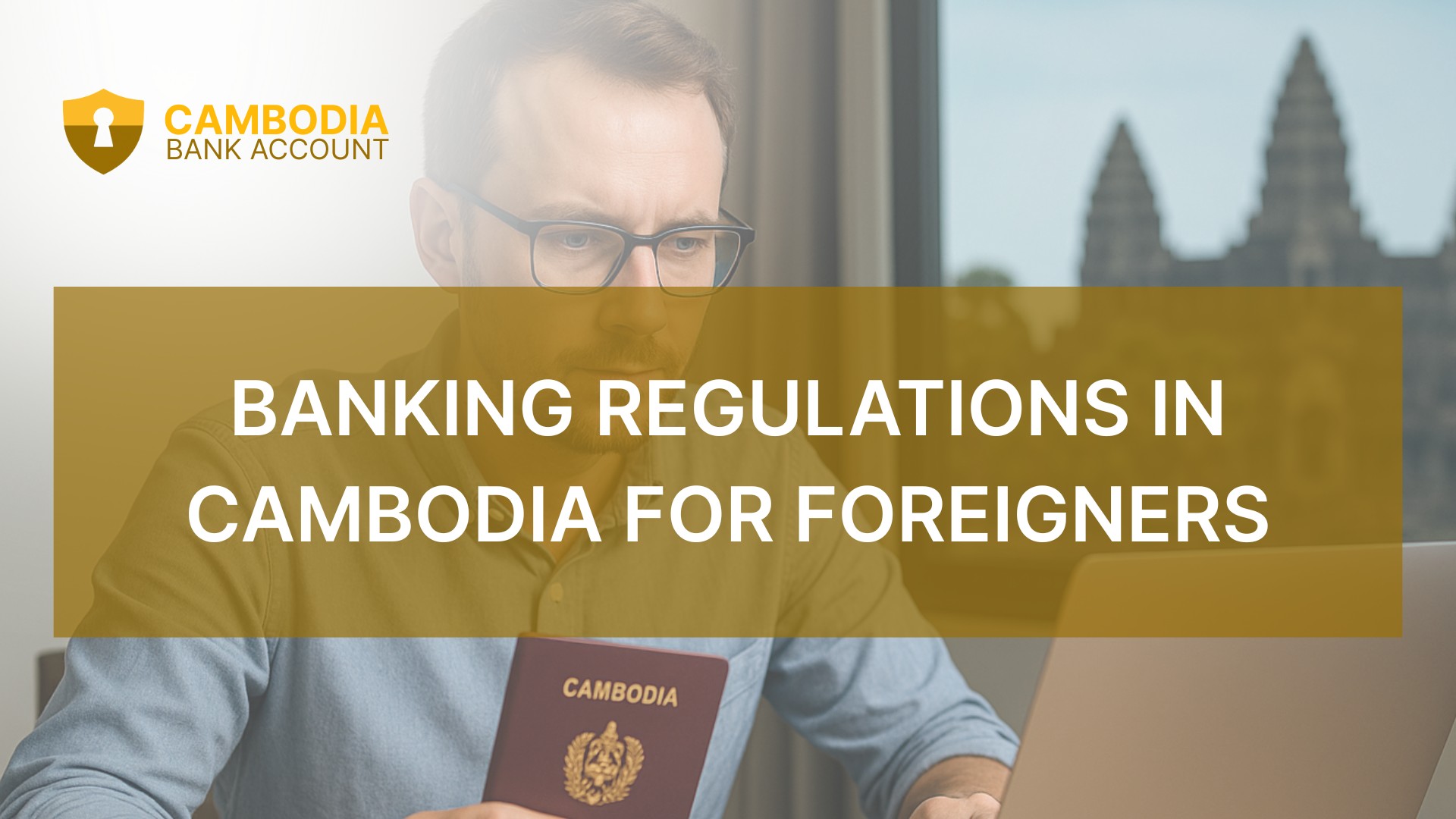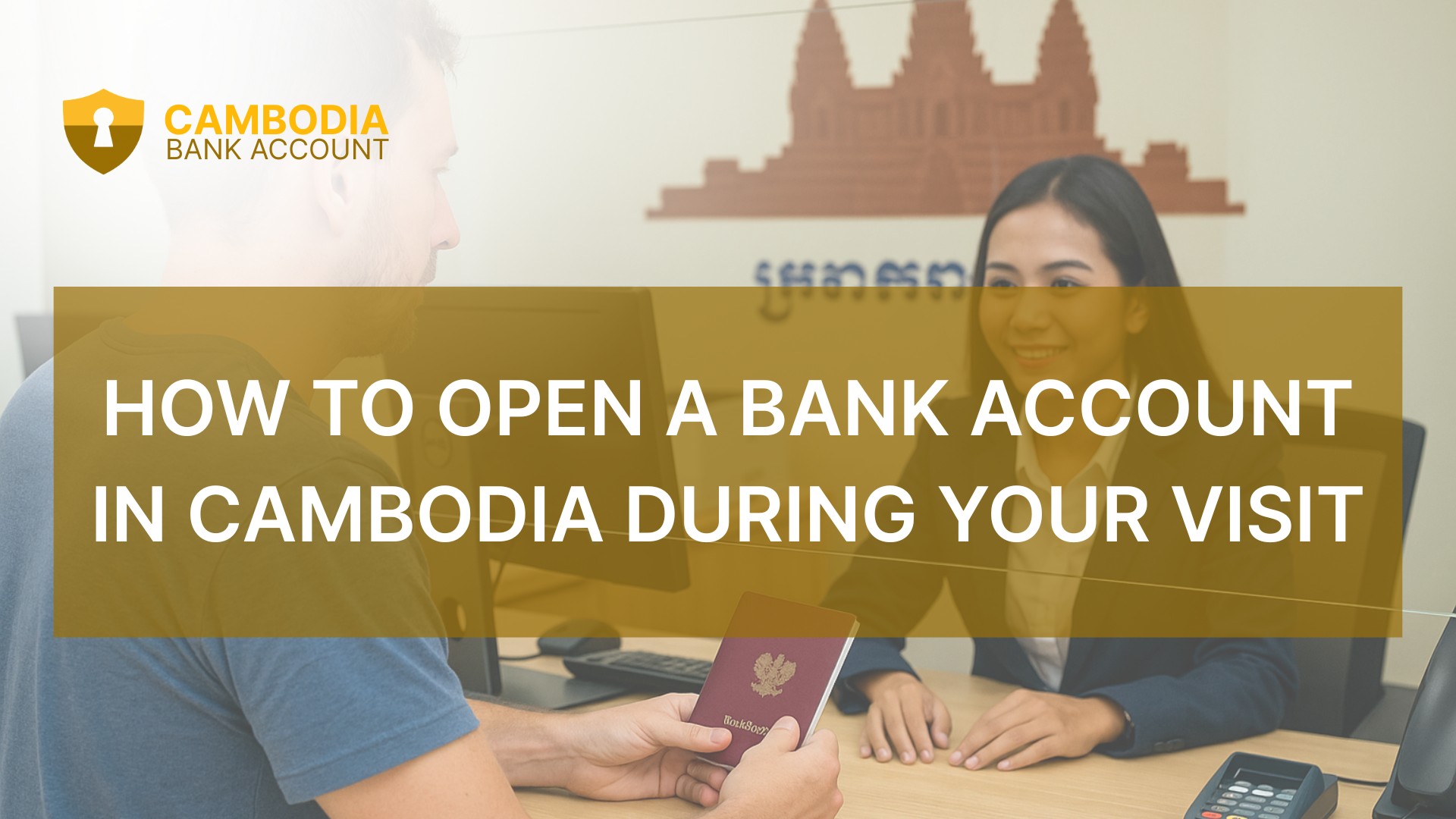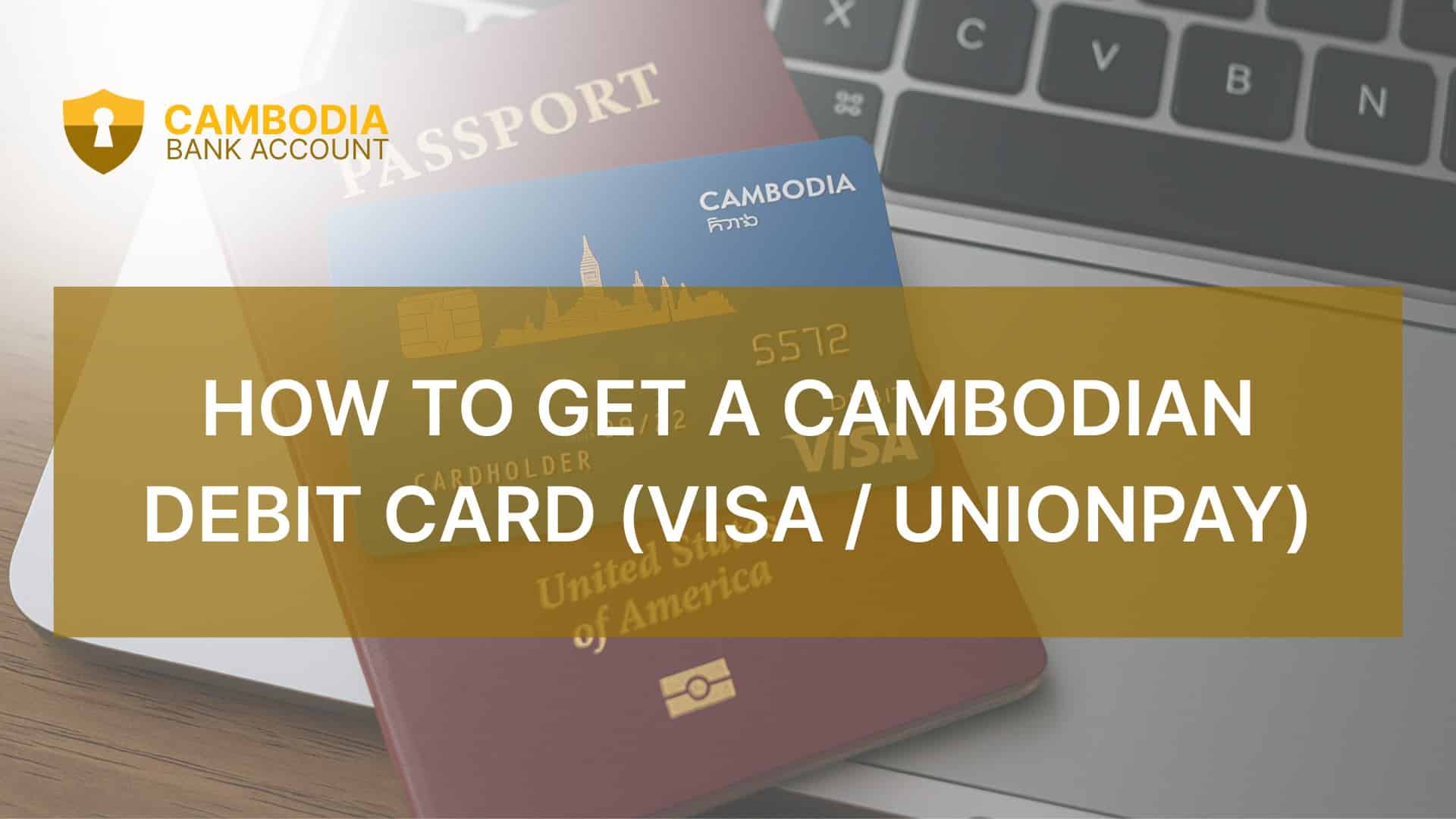For foreigners seeking offshore banking opportunities, Cambodia has emerged as one of Southeast Asia’s most accessible jurisdictions. While the process of opening an account is fast and relatively simple, there are still banking regulations, visa rules, and compliance requirements that every expat, entrepreneur, or investor should understand before getting started.
Cambodia offers a unique combination of USD-denominated accounts, non-CRS reporting status, and digital account opening, but this does not mean the system is unregulated. Instead, the country has developed a framework that balances accessibility with security — making it both attractive and compliant with international standards.
This article explains the banking regulations in Cambodia for foreigners, including visa requirements, KYC/AML obligations, and the key differences between personal and business accounts.
An Overview of Cambodian Banking
Cambodia operates a dual-currency economy, where both the Cambodian riel (KHR) and the US dollar (USD) are widely accepted. For foreigners, USD is the default banking currency.
The National Bank of Cambodia (NBC) regulates the sector. While Cambodia has not joined the OECD’s Common Reporting Standard (CRS), which mandates the automatic exchange of financial information between tax authorities, it does follow anti-money laundering (AML) and know-your-customer (KYC) protocols.
This regulatory balance makes Cambodia one of the few jurisdictions where foreigners can:
- Open accounts remotely.
- Hold USD-based balances.
- Retain financial privacy.
- Operate under global-standard compliance.
Visa Requirements for Banking in Cambodia
Foreigners can open bank accounts remotely without needing residency, but those physically present in Cambodia will encounter additional requirements tied to visa type.
1. Business Visa (Type E)
- The most common visa for expats setting up accounts in person.
- Usually issued for one month upon entry, then extended to 6 or 12 months.
- Required for business banking in some institutions (e.g., ABA Bank).
2. Tourist Visa (Type T)
- Not ideal for banking.
- Most banks require a longer-term visa if you want to open in person.
3. Remote Banking (No Visa)
- If you open an account fully online, banks typically only require passport verification, without visa conditions.
Compliance: KYC and AML Rules
Even though Cambodia is not part of CRS, its banks enforce KYC and AML standards. This ensures legitimacy while still offering foreigners more flexibility compared to Western jurisdictions.
- KYC (Know Your Customer): Requires passport identification, phone number, and email.
- AML (Anti-Money Laundering): Transactions above certain thresholds may trigger reporting or requests for additional documentation.
- Source of Funds: While not as heavily scrutinized as in Europe, large incoming transfers may require proof of origin (e.g., contracts, invoices, crypto withdrawal records).
This approach allows Cambodia to remain compliant with international norms while avoiding the heavy bureaucracy of Western banks.
Personal vs. Business Banking for Foreigners
Foreigners can open both personal and business accounts in Cambodia.
Personal Accounts
- Opened with a passport and remote verification.
- Used for personal savings, client payments, travel expenses, and everyday banking.
- Includes debit card access (Visa or UnionPay).
Business Accounts
- Requires business visa and company registration documents.
- Used for corporate operations, payroll, or large-scale investments.
- Offers access to higher transaction limits and additional services like SWIFT transfers for companies.
Foreign entrepreneurs often start with a personal account and later establish a business account once their company registration is complete.
Currency and Transaction Rules
- Primary Currency: USD accounts dominate, with riel used locally for small cash purchases.
- Foreign Transfers: Banks allow SWIFT transfers in and out of Cambodia.
- Crypto Funding: Many banks allow deposits from crypto exchanges — although this is still handled case by case.
- Card Payments: Cambodian-issued Visa and UnionPay cards are usable globally.
Cambodian Regulations vs. Other Jurisdictions
To understand Cambodia’s regulatory position, let’s compare:
| Jurisdiction | CRS Participation | Visa Requirement for Banking | Currency | Remote Account Opening |
|---|---|---|---|---|
| Cambodia | ❌ No | ✅ Business Visa (on-site) | USD | ✅ Yes (remote) |
| Thailand | ✅ Yes | ✅ Residency/Work Permit | THB | ❌ No |
| Singapore | ✅ Yes | ✅ Residency/Business Setup | SGD/USD | ❌ No |
| Switzerland | ✅ Yes | ❌ Not Required (but KYC) | CHF/EUR/USD | ❌ No (must visit) |
| Offshore Caribbean Banks | ✅ Yes | ❌ Minimal Visa Needs | USD/EUR | ✅ Partial |
Cambodia’s unique combination of USD accounts, non-CRS status, and remote onboarding sets it apart.
Privacy vs. Compliance
One of the most important regulatory aspects in Cambodia is the balance between privacy and compliance:
- Privacy: No automatic CRS reporting to foreign tax authorities.
- Compliance: AML/KYC rules still enforced for large or suspicious transactions.
This balance makes Cambodia attractive for individuals who want financial discretion without operating in a completely unregulated environment.
Business Opportunities for Foreigners
Beyond personal banking, Cambodia’s financial regulations also support:
- Company Formation: Easy for foreigners to register businesses and open corporate accounts.
- Real Estate Investments: Accounts facilitate property purchases in USD.
- Cross-Border Trade: Business accounts are designed for import/export operations.
- Crypto Enterprises: More flexibility than in Europe or the US.
The banking framework thus encourages both personal and professional integration for foreigners in Cambodia.
The Future of Cambodian Banking Regulation
Cambodia is modernizing its financial system while deliberately keeping it accessible to foreigners. Trends to watch:
- Greater Digital Integration: Mobile apps and online banking are already strong and likely to expand.
- Crypto Ecosystem: Banks may offer even deeper integration with digital assets.
- Regulatory Pressure: Global institutions may push Cambodia to adopt CRS in the future, but for now, the country retains independence.
- Fintech Growth: New platforms could complement traditional banking, especially for nomads and expats.
Getting Started as a Foreigner
Understanding regulations ensures you avoid surprises. For foreigners, the process is straightforward:
- Prepare your passport scan.
- Decide whether you need a personal or business account.
- If on-site, secure a business visa (E type).
- If remote, proceed with online application and verification.
- Receive your account details within 24–48 hours.
- Apply for a debit card and use it globally.
📲 Mobile / WhatsApp / Telegram: +855 96 395 5970
📧 Email: info@tomaszrozmus.com




